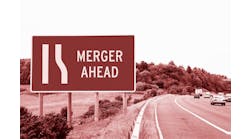Establishing the value of a body shop is an integral step of the business selling process. Even if retirement seems far off, taking proactive steps towards finding the value of your shop and adding more goodwill value can ensure a smoother selling process later.
Hal Janke is the president of Sunbelt Business Brokers of San Diego. With more than 30 years of experience in business and franchise sales, Janke is a specialist in the automotive repair industry, and has helped sell more than 100 automotive service and collision centers. He also holds certified business intermediary status, the highest industry designation, and is an active member of the California Association of Business Brokers and the International Business Brokers Association.
Janke recently spoke with FenderBender about how to establish the value of your business and how to add more value before beginning the selling process.
What do auto body shop owners need to do to prepare for the sale of their business?
I think the most important direction they can take is having the proper profit-and-loss statements and balance sheets for up to three years. Having the tax returns that match up with the balance sheet and the profit-and-loss statement for those three years is also important. Buyers usually ask for three years of those financials, but it could be as much as five years.
In addition, you should have an equipment list, an operations manual, and a list of your employees, which should include their duties and responsibilities within the business, and their monthly salary.
You also want information about your property, or if you rent the property, the leasing information. In some states, like California, a lot of property is owned by large corporate companies, so there isn’t much property readily available to purchase. In other states, the availability of property is more prevalent. If you’re in an area where leases are more common, it’s important to have the leasing information nailed down. Try to get as long of a lease as possible. A 10-year lease with a 10-year option used to be more common, but things have changed, and a three-year with two three-year options is the norm.
When should shop owners start thinking about selling or the value of their shop?
Any business owner should be thinking three years ahead. It’s important to plan that far ahead so you have the proper documentation and a good business broker in place who will keep in touch with you about the listing. From the beginning to the end, the selling process usually takes six to seven months.
I think one of the most important things for a seller to realize is that once the business is listed, the seller is not to become complacent. I see a lot of sellers do that; they kick back and they’re not as aggressive with their marketing or advertising. This is totally different than selling a home or residential property. There’s a lot more detail, and it’s important to know that up front.
How can you determine what your business is worth?
The best way to determine the value of the business is to have a professional do a business valuation. The way you do that is to complete a broker’s value of opinion.
For example, if somebody called me, I would go out there, meet the owner, go through the financials and then I would do a broker’s opinion of value based on the cash flow analysis. Usually in that case, I would use a multiple of anywhere from 2 to 2.5 times against the seller’s discretionary cash flow or discretionary earnings.
I also take into account the following considerations, which help determine the income multiplier, which is a combination of a shop’s earnings and other variables that might make it more attractive to an owner: does he have a short-term lease or a long-term lease? Is this a primary or secondary location? Will the key employees stay after the sale? Does he have a good manager? How long has the business been established? What is the reputation of the business?
What are the income multipliers used to determine the value of a body shop?
We normally take the seller’s profit-and-loss statement and we look at what can be added back to the net profit shown, such as officer’s salary, officer’s pay roll tax, depreciation, interest, amortization, and the owner’s personal expenses that a buyer wouldn’t normally incur. That produces an adjusted net profit or discretionary earning. The multiples on those normally run from 1.5 times to 3 times.
As an example, let’s say an owner is showing an income of $50,000 a year on his tax returns but we do the add backs and the income comes out to $150,000. The value of the multiple is determined off the $150,000. If we put a multiple of 2 times on that, we would put that business on the market for $300,000.
What kinds of things are buyers looking for, both inside and outside the shop?
Aesthetically, they’re looking for a shop that looks professional, clean, and orderly. They don’t want a business that’s run down. Some relatively quick fixes include putting a fresh coat of paint on the building, updating the signage, or adding nice landscaping. Buyers want the building to look fresh and not used, so you want to make the building itself as appealing as possible.
Inside the shop, they’re looking for a shop that is computerized and has a professional software program in place with all the customers and clients in the database. Of course, they’re also looking at books and records, the lease, and asking questions about key personnel.
What kind of an impact does location, equipment, and staff have on the value of the shop?
All of those are very important elements. The location, the database of customers, the lease—those are all part of your goodwill. I think staff comes first, along with your location. You want to make sure that there’s a manager in place besides the owner. There should also be at least two or three techs, an apprentice, and a receptionist or administrative assistant.
Equipment is not as important because you can always add equipment later. The buyer is generally going to be looking at how soon the equipment will need to be replaced. If your equipment is old and needs to be replaced, that’s going to detract from the value of the business. On the other hand, I advise people not to invest in a new, $100,000 spray booth that you’re not going to be able to pay back within the next year or two. Obviously you need to have the equipment to run the business, but it doesn’t make sense to make large investments that aren’t going to pay themselves back in the short period of time before your business is sold.
You want to make sure the business has a good management software program and all of its customers are in the computer system.
It’s also important to qualify your DRPs or any large accounts. If you have one account that makes up more than 20 percent of your sales revenue, that’s not a good thing. I’ve seen in the past where they leave after the sale and the business has to try and recapture that 20 percent somehow. If you can keep your commercial or wholesale accounts to no more than 10 percent being the largest one, then you’re OK.
What are some common mistakes you see shop owners make when selling their businesses?
We recently were talking to someone who owns a car wash. He said he would get us the books and records immediately.
We started putting the listing together and we didn’t’ get the books and records until a month later. And this is a business that’s on the market for $1.3 million and nets $300,000 a year. He didn’t even have the documentation or the paperwork and financials prepared. One of the primary mistakes a shop owner can make is not properly preparing to bring their business to a marketplace.


